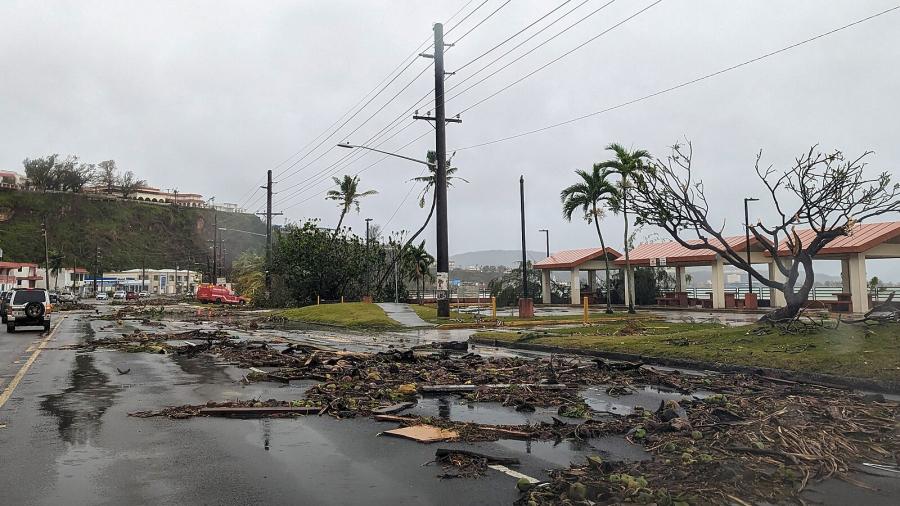Chapter XI of the Charter of the United Nations deals with Non-Self-Governing Territories, and calls for international accountability regarding peoples who have not achieved a full measure of self-government. Article 73 reads in part as follows:
"Members of the United Nations which have or assume responsibilities for the administration of territories whose peoples have not yet attained a full measure of self-government recognize the principle that the interests of the inhabitants of these territories are paramount, and accept as a sacred trust the obligation to promote to the utmost, within the system of international peace and security established by the present Charter, the well-being of the inhabitants of these territories, and, to this end:
a. to ensure, with due respect for the culture of the peoples concerned, their political, economic, social, and educational advancement, their just treatment, and their protection against abuses;
b. to develop self-government, to take due account of the political aspirations of the peoples, and to assist them in the progressive development of their free political institutions, according to the particular circumstances of each territory and its peoples and their varying stages of advancement...;
e. to transmit regularly to the Secretary-General for information purposes, subject to such limitation as security and constitutional considerations may require, statistical and other information of a technical nature relating to economic, social and educational conditions in the territories for which they are respectively responsible other than those territories to which Chapters XII and XIII apply."(1)
Since Hawai'i was a "territory" of the United States in 1945, it is no surprise that the United Nations in 1946 listed Hawai'i as a Non-Self-Governing Territory under the administration of the United States (Resolution 55(I) of 14th December 1946). Also listed as non-self-governing territories under the jurisdiction of the United States were Alaska, American S...moa, Guam, Puerto Rico and the Virgin Islands.
From 1946 to 1959 when Statehood was imposed on Hawai'i, the United States had: 1) a "sacred trust" obligation to the "inhabitants" of Hawai'i detailed in sections a. and b. above, and 2) an annual reporting obligation to the General Assembly under e. above.
America transmitted annual reports on Hawai'i to the U.N. Secretary General from 1946 until September 1959. By letter dated September 17, 1959, the United States notified the U.N. Secretary-General that Hawai'i had become a state of the Union in August 1959 and that the United States would thereafter cease to transmit information to the United Nations.
Upon receipt of this letter, the United Nations removed Hawai'i from its list of Non-Self-Governing Territories.
HOW THE U.S. VIOLATED ITS INTERNATIONAL TRUST OBLIGATIONS TO THE NATIVE PEOPLE OF HAWAI'I
On November 27, 1953, the Fourth Committee of the U.N. General Assembly passed Resolution 742. This resolution was entitled "Factors which should be taken into account in deciding whether a Territory is or is not a Territory whose people have not yet attained a full measure of self-government." Part I of the Resolution identified "Factors indicative of the attainment of Independence." Part II of the Resolution listed factors indicative of the attainment of "other separate systems of self-government." Part II of the Resolution addressed factors indicative of the Free Association of the territory as an integral part of that country.
Hawai'i was made a state of the Union. Our Native people were not given Independence nor Free Association status, nor were we allowed to create our own separate form of government.
The factors listed in Part II of Resolution 742 include:
A.2. Freedom of choice. Freedom of choosing on the basis of the right to self-determination of a peoples between several possibilities, including independence.
A.5. Ethnic and cultural considerations. The extent to which the populations are of different race, language, or religion, or have a distinct cultural heritage, interests or aspirations, distinguishing them from the peoples of the country with which they freely associate.
C.3. Economic, social and cultural jurisdiction. Degree of autonomy in respect of economic, social and cultural affairs, was illustrated by the degree of freedom from economic pressure as exercised for example by a foreign minority group which, by virtue of the help of a foreign power, has acquired a privileged economic status prejudicial to the general economic interest of the people of the Territory; and by the degree of freedom and lack of discrimination against the indigenous population of the Territory in social legislation and social developments.
History verifies that the United States violated the provisions of Resolution 742. The federal ballot used in 1959 did not afford the people of Hawai'i "several possibilities, including independence" nor were the Hawaiian people given the option to create their own "separate system of government." Consequently, the Native people of Hawai'i were not allowed to exercise the "right to self-determination."
CONCLUSION
The United Nations never inquired into the Statehood Plebiscite nor did the United Nations monitor the process. The U.N. record reveals that the United States was a permanent member of the U.N. Committee that received and acted upon America's report on statehood. Subsequent to receiving the report, the U.N. removed Hawai'i from its list of Non-Self-Governing Territories -- despite the fact that the United States had violated its "sacred trust" to the Hawaiian people and all the people of the Territory.
Ka L...hui's Position
Ka L...hui Hawai'i believes that Hawai'i should be reinscribed on the U.N. list of Non-Self-Governing Territories in order for the process of decolonization to begin. In light of the 1991 Report of the Hawai'i Advisory Committee to the U.S. Commission on Civil Rights, there can be no doubt that the civil rights of the Hawaiian people are being violated. Until these issues are addressed, the United States should be required to file annual reports at the United Nations on the status of Hawai'i and its Native people.
In 1989 Ka L...hui Hawai'i was able to submit a resolution at The World conference of Churches Global Consultation in Geneva, calling for Hawai'i to be reinscribed on the U.N. list of Non-Self-Governing Territories. In 1993 while attending the World Conference on Human Rights in Vienna, the Global Indigenous Delegates address to the U.N. Plenary Session called for Hawai'i's reinscription on the U.N. list of Non-Self-Governing Territories. The Global Indigenous statement was presented to the Plenary by Kia'...ina, Mililani Trask.
(1) United Nations Action in the Field of Human Rights, U.N. Publications Sales No. E. 83.XIV. 2, United Nations, New York, 1993.
Article copyright Cultural Survival, Inc.



